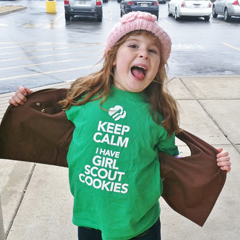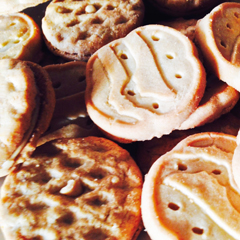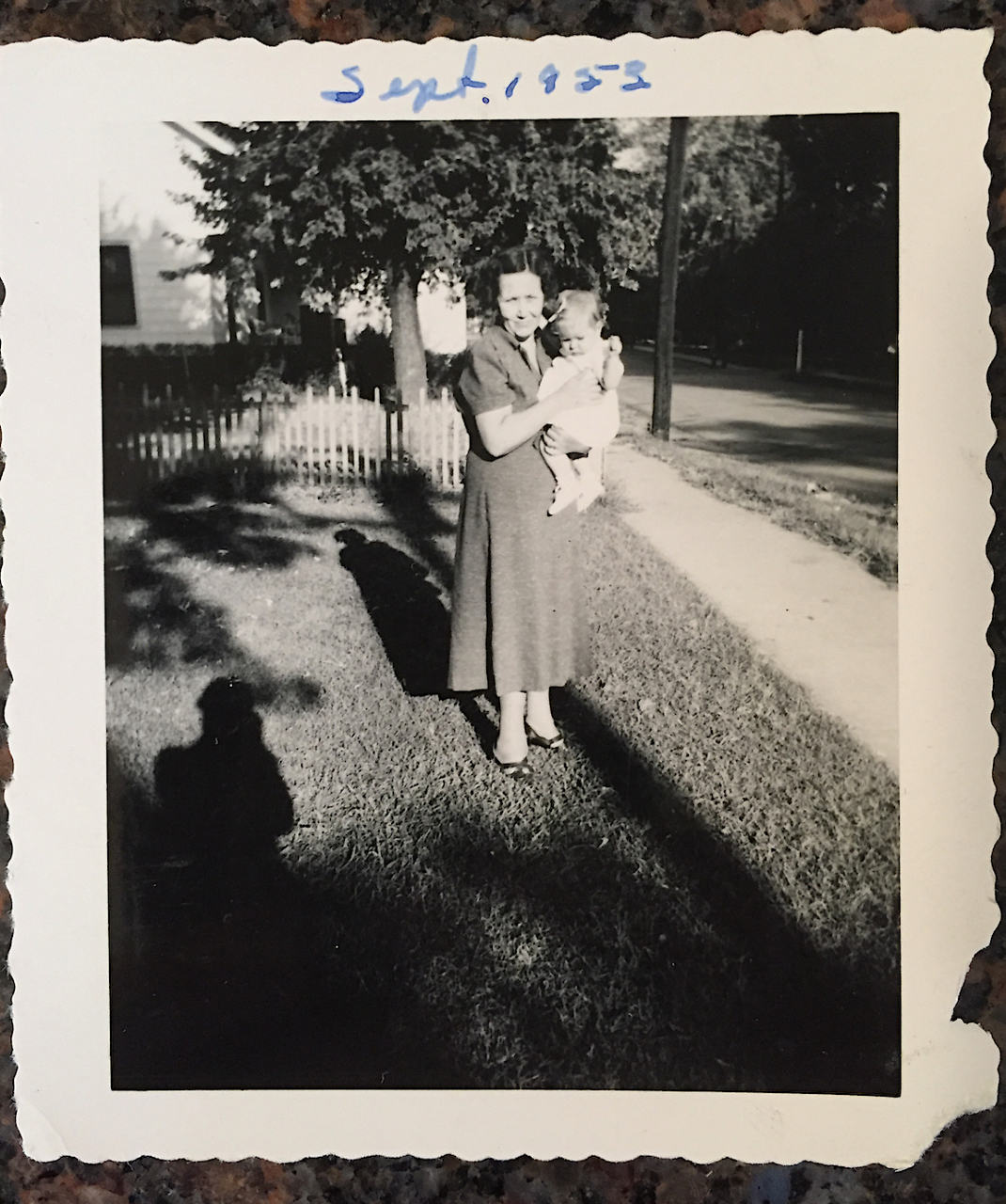The Sweetest Legacy
People think they’re buying Girl Scouts cookies; what they’re really buying is a ticket back to childhood
I never knew that my mother had sold Girl Scout cookies until my daughter did. I knew a lot of other things about my mother, of course. I knew that she once snuck out of the house to see James Brown in concert, and that the ticket cost five dollars. I knew that she had listened to a forty-five of the Rolling Stones’ “Satisfaction” for twenty-four hours straight when the song was first released. Based on these two facts alone, I can surmise that she was the coolest teenager in all of Franklin County, Tennessee, in 1965.
 And I also knew that my mother’s own mother had died when she was just four. This is probably why I never knew she was a Girl Scout; she has never talked much about her younger years. She’s the eternal optimist, always focused on the positive, on the future. It was nice to hear this new story, to hear her laugh as she told my daughter that she had once been a Girl Scout, too, and that she had also sold cookies. She was really good at it, she said.
And I also knew that my mother’s own mother had died when she was just four. This is probably why I never knew she was a Girl Scout; she has never talked much about her younger years. She’s the eternal optimist, always focused on the positive, on the future. It was nice to hear this new story, to hear her laugh as she told my daughter that she had once been a Girl Scout, too, and that she had also sold cookies. She was really good at it, she said.
My mother’s former life as a top cookie-sales girl has been the most personal story of the tales I’ve heard since my daughter starting selling cookies, but it’s far from the only one. Girl Scout cookies have been sold in this country since 1917—and since 1936 on the national scale we now recognize. People do love the cookies. But I sometimes think we’re selling more than cookies: we’re really selling people’s childhoods back to them.
Last weekend an elderly woman emerged from the store stooped over a cart filled with bags of bird seed and cat food. She shakily pushed her way to the Girl Scout table and bought one box of Do-Si-Dohs, carefully counting out exact change. Back in 1939, she had sold Girl Scout cookies herself. During World War II, she told us, ingredient shortages meant there were no cookies, so the Girl Scouts sold calendars instead. Today she lives on a small income, but she always buys just one box, “to help the girls.”
We sold cookies through a car window to a young man who pulled up to get a couple of boxes for his wife, who was pregnant and in the hospital with pneumonia. We sold cookies to a pregnant woman pushing a baby stroller for the triplets she already had. “Get whatever you want,” her weary-looking husband said. “You deserve them.”
“I’ve been waiting for y’all,” people say at our table. “Save me some Thin Mints,” others will say as they’re walking into the store. “I’ll get them on my way out.” An astonishing number of people won’t buy any cookies until they call their loved ones to ask which kind they like. It’s a given that this matters. Everyone has favorites.
 I am a little embarrassed now that I hesitated to let my daughter sign up to be a Daisy. I was never a Girl Scout myself; all I knew about the organization was that they sold cookies and that some of those cookies were called Thin Mints. I assumed that “Girl Scouts selling cookies” really meant “parents selling cookies,” and I would frankly prefer to clean shower drains for two months. I kept thinking of Lloyd Dobler, played by John Cusack in the classic ‘80s film Say Anything: “I don’t want to sell anything, buy anything, or process anything as a career. I don’t want to sell anything bought or processed, or buy anything sold or processed, or process anything sold or bought, or repair anything sold, bought, or processed. You know, as a career, I don’t want to do that.”
I am a little embarrassed now that I hesitated to let my daughter sign up to be a Daisy. I was never a Girl Scout myself; all I knew about the organization was that they sold cookies and that some of those cookies were called Thin Mints. I assumed that “Girl Scouts selling cookies” really meant “parents selling cookies,” and I would frankly prefer to clean shower drains for two months. I kept thinking of Lloyd Dobler, played by John Cusack in the classic ‘80s film Say Anything: “I don’t want to sell anything, buy anything, or process anything as a career. I don’t want to sell anything bought or processed, or buy anything sold or processed, or process anything sold or bought, or repair anything sold, bought, or processed. You know, as a career, I don’t want to do that.”
This is basically the introvert’s manifesto, and I assumed that selling Girl Scout cookies would be like selling anything else. I was wrong. Standing at a Girl Scout table outside a grocery store on a Saturday afternoon isn’t really an exercise in sales. It’s an experience in story sharing, oral-history gathering, and partaking in a lovely American tradition.
Collectively Americans buy 200 million boxes of cookies a year, most in a span of about two months. Girl Scouts are allowed to begin taking orders on Christmas Eve (when lots of family members are conveniently around), and they take individual orders through January. February weekends are reserved for selling at booths, and an elaborate lottery system determines which troops get which booths. It puzzles me that cookie sales take place during the time of year when millions of people are trying to diet; then again, it does soften people’s hearts to see girls shivering in the cold with those boxes stacked neatly on the table beside them.
The cookies aren’t fat-free. But they’re trans-fat-free, and they’re all kosher. There are currently twelve varieties, although some aren’t available in all parts of the country. And some go by different names based on where they’re sold, so that what you call Samoas someone else might call Caramel DeLites. The newer varieties are Dulce de Luche and a Thank U Berry Munch. They’re both delicious, but it’s a hard sell to pull people away from their traditional favorites.
And, by the way, there’s an app for this: Girl Scout Cookie Tracker will pinpoint the nearest booth sale to you. They’re winding down now for the season. If you don’t already have a couple of boxes of Thin Mints stashed in the freezer, it’s time to stock up.
My mother bought three boxes of Samoas herself, for the girls.
Copyright (c) 2014 by Serenity Gerbman. All rights reserved.


